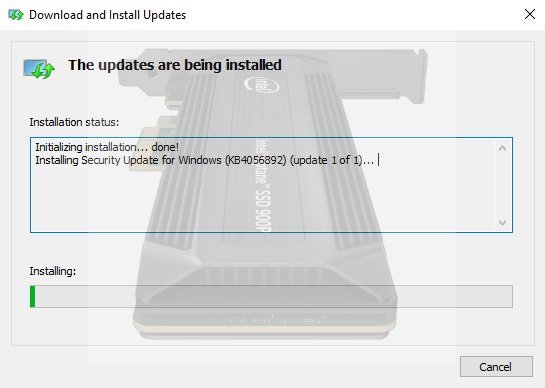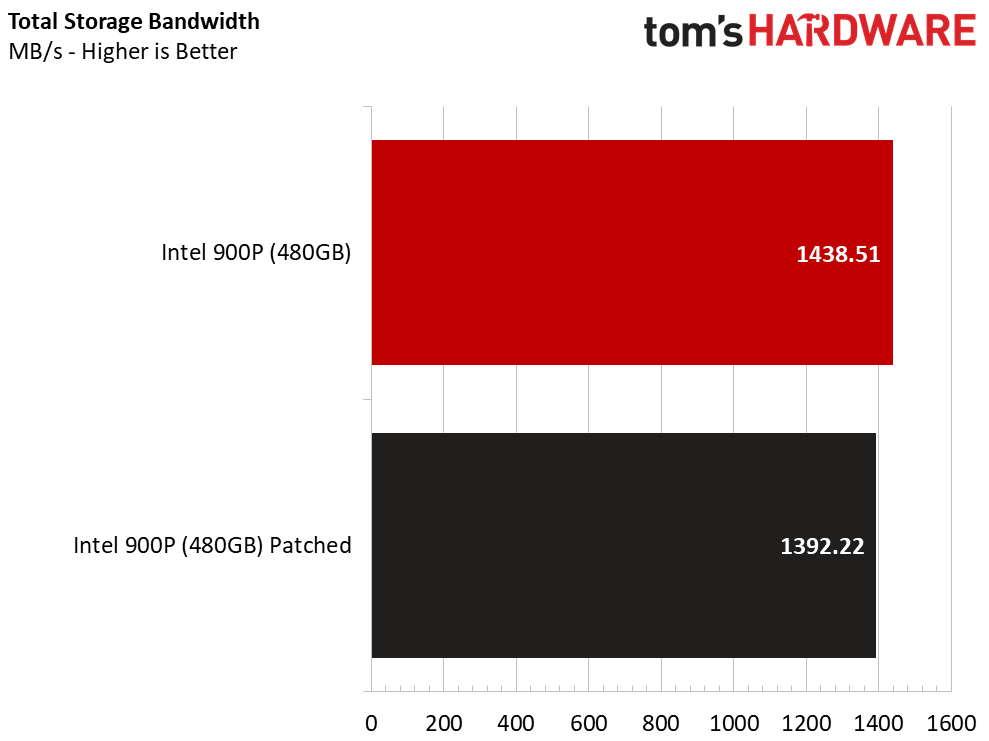Microsoft's 'Meltdown' Patch Has Little Impact On Storage Application Performance
Get Tom's Hardware's best news and in-depth reviews, straight to your inbox.
You are now subscribed
Your newsletter sign-up was successful
The Meltdown and Spectre exploits have made mainstream news over the last three days, to the point that you would think the heavens were raining fire. Now, we're not here to downplay the seriousness of the revelation two decades' worth of hardware vulnerabilities, but we will speak with a calm voice. We ran a few tests to measure the performance impact of Microsoft's new Meltdown patch on the fastest storage device available.
Early testing from the blogsphere shows storage performance falling victim to Microsoft's early patch. The patch does cause some performance loss, but it's primarily confined to enterprise-class workloads, where some have pegged regressions at 20% and even 30% with synthetic workloads.
We chose Intel's Optane 900P 480GB to measure the impact of Microsoft's patch in synthetic and real-world performance. The 900P with 3D XPoint memory technology will show the largest performance gap between pre- and post-patch performance. Many storage tests with normal NAND-based SSDs are subject to the usual inconsistent performance we see with SSDs, which may be a factor in some of the test results already posted online. Optane doesn't require preconditioning to generate consistent test results between test runs, so it's well-suited for providing rock-solid reproducible benchmark results with a minimum of extra testing gymnastics.
Synthetic workloads show what could be possible--in this instance, the worst-case scenario--but we've warned about using synthetic tests to gauge performance. These tests isolate individual components as best as possible, but in the real world, your components work together, not separately. When it comes to modern storage, the software is the bottleneck rather than the hardware components.
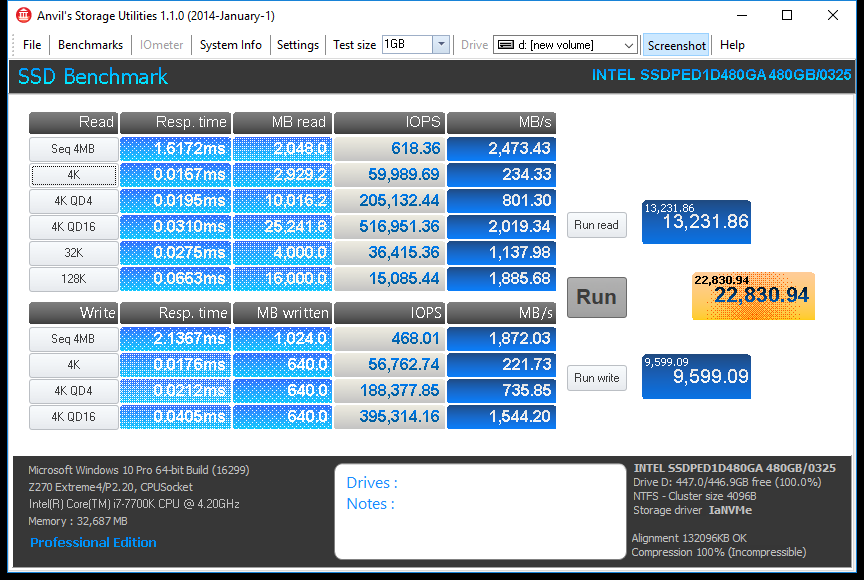
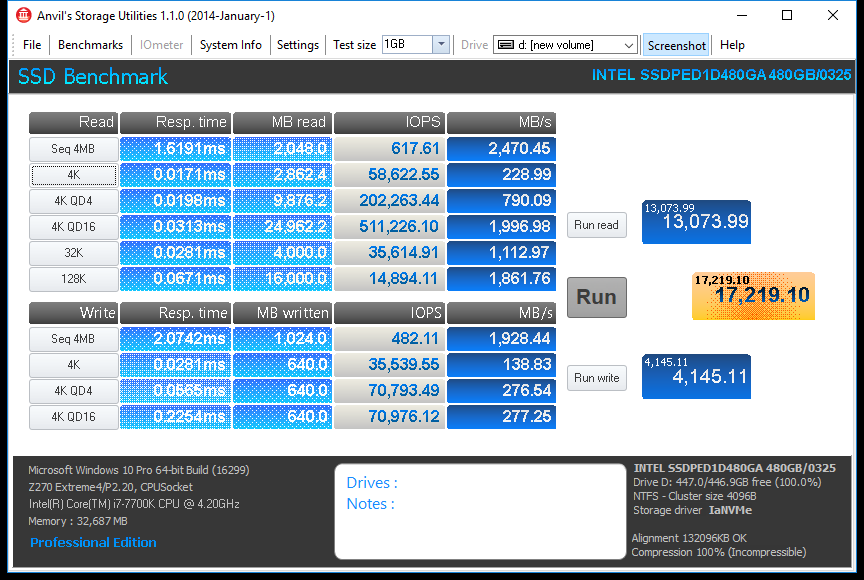
Anvil Storage Utilities, a popular one-click synthetic performance benchmark used widely in forums, shows the largest performance loss after the update. We see a big reduction in random write performance during the test. We lost more than half of the random write performance with a 4K random workload at QD4, and we receive ~5x less performance at QD16. We also lose quite a bit of performance at the all-important QD1.
However, synthetic benchmarks track multiple axes of performance in real-time during the workload. We theorize that rapidly querying the system for this telemetry data could exacerbate the issue with system calls, which are the primary source of performance reductions with the new patch.
For the final score, the software also weights random over sequential performance and emphasizes write speeds rather than read speeds. The software came to market in mid-2011 when random write performance was much lower than it is today. Since 2011, random data write latency has surpassed what Windows is capable of using in most consumer workloads. This why, as we noted above, the bottleneck has moved from the hardware to the software.
Get Tom's Hardware's best news and in-depth reviews, straight to your inbox.
Those losses occur in a synthetic benchmark that is likely inflating the performance reduction, but we set out to see if that performance reduction occurs with an application-based workload. We're using FutureMark's PCMark 8 Storage Test to look at consumer application performance where random data reads have a larger impact on performance.
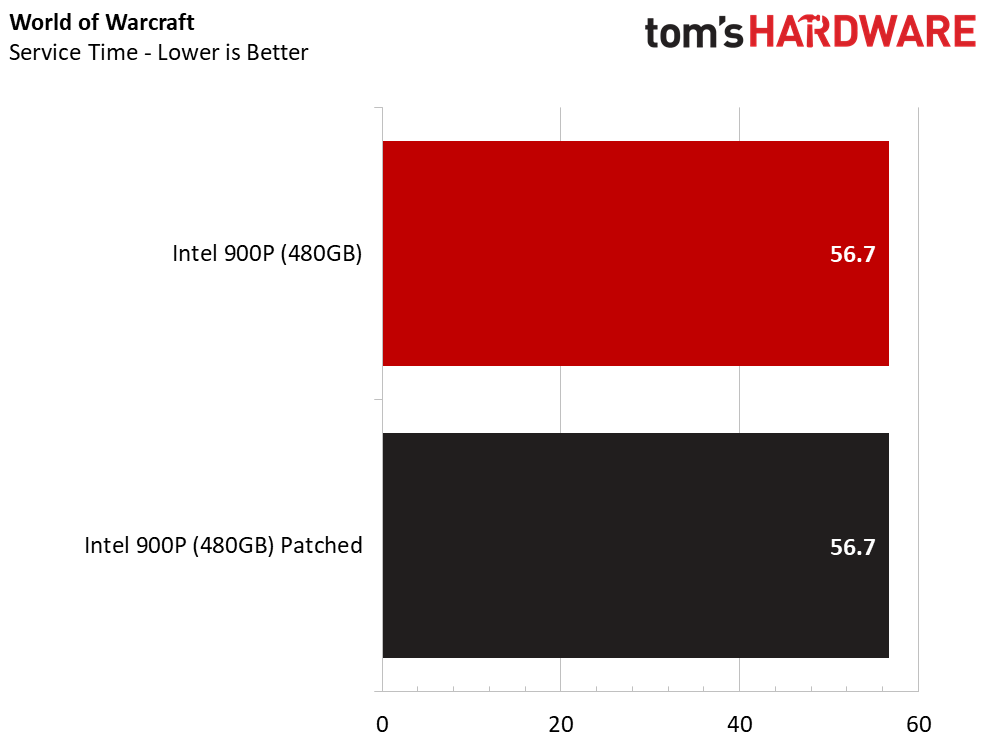
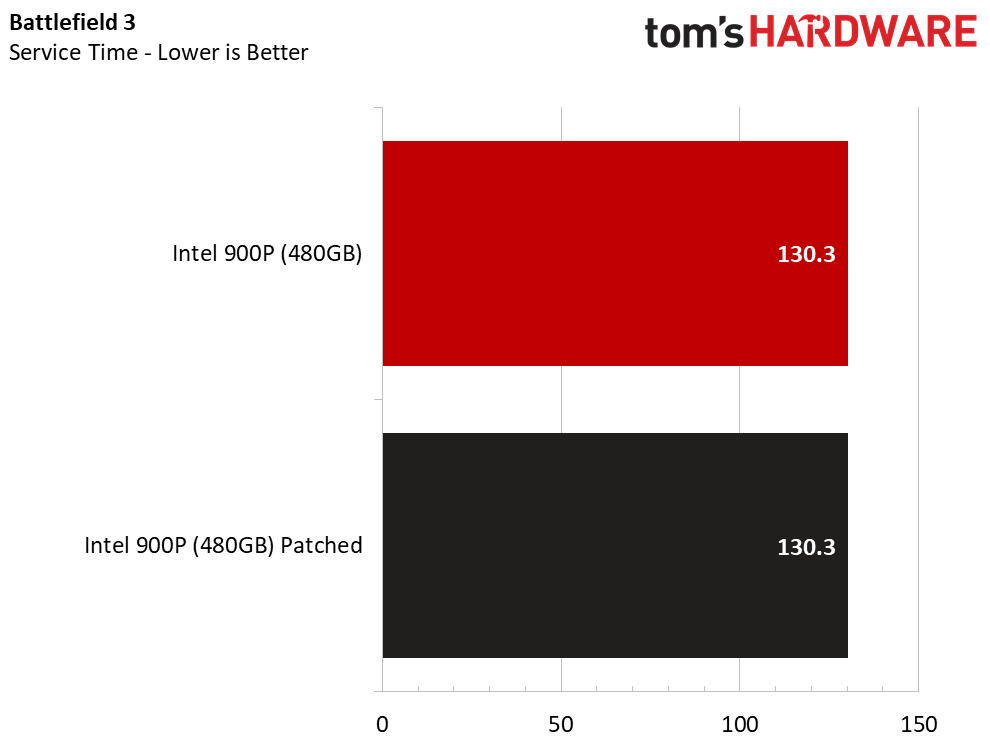
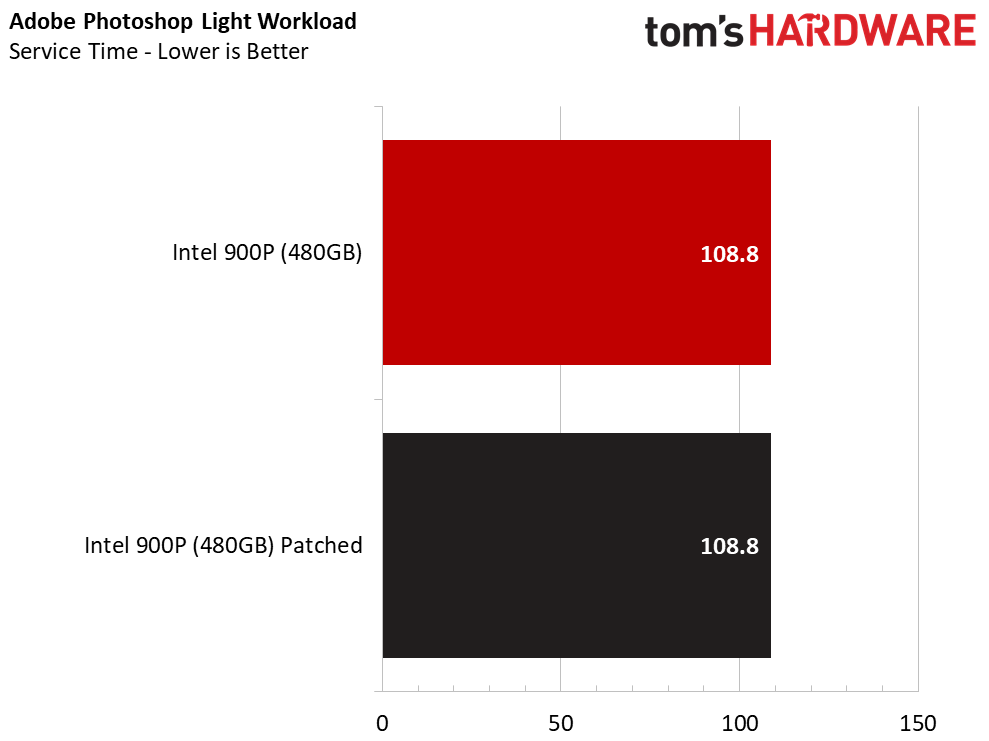
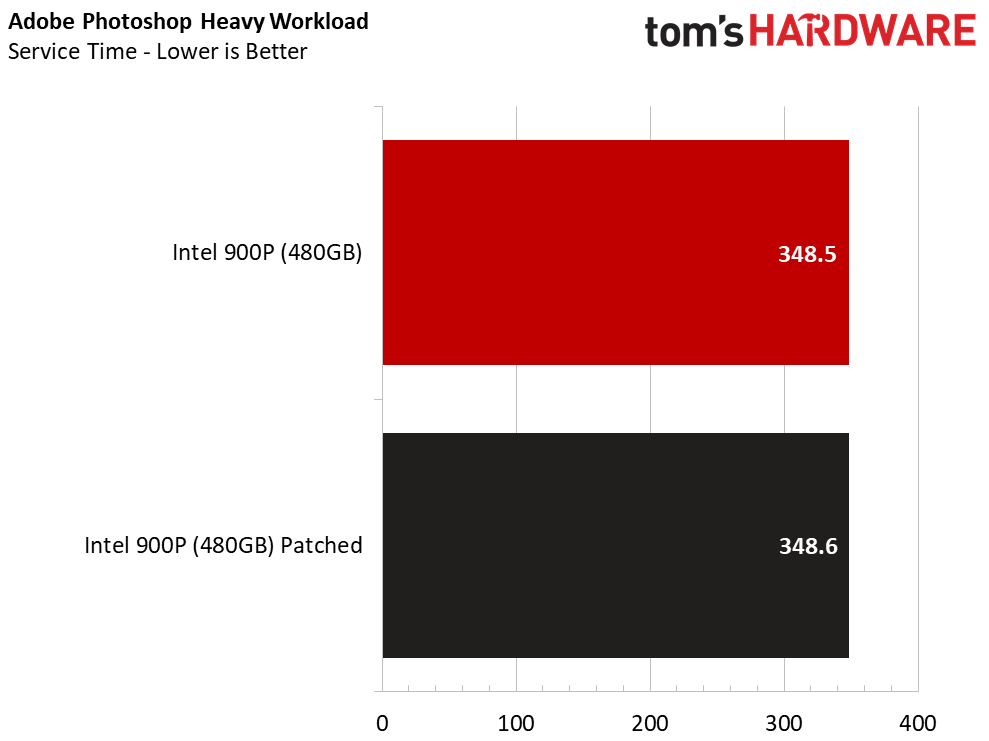
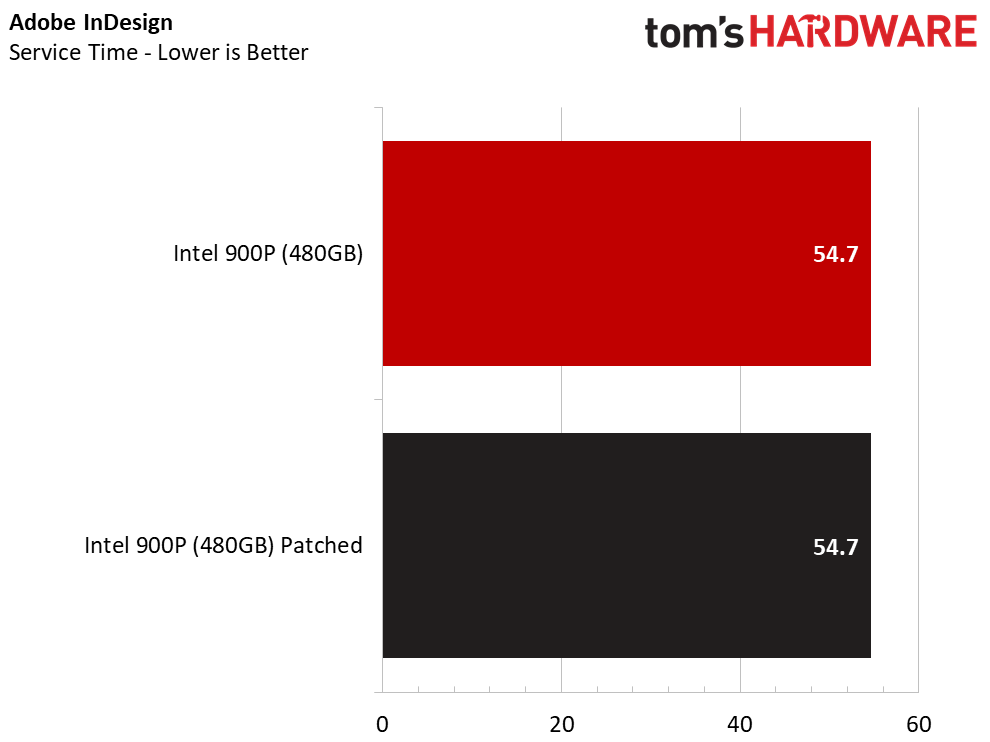
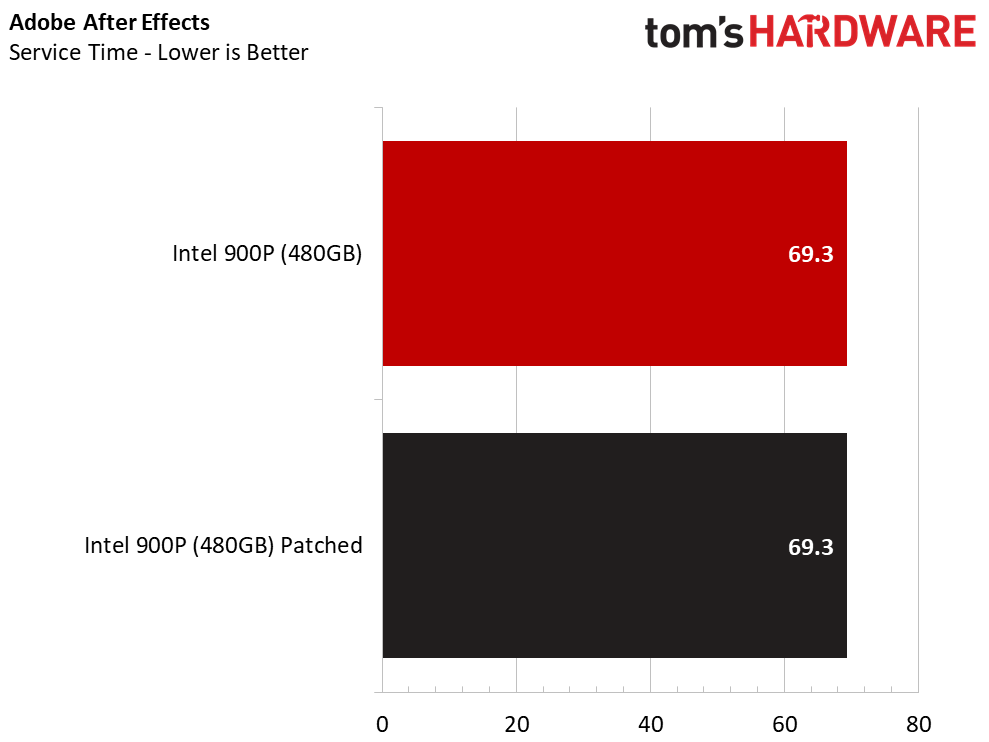
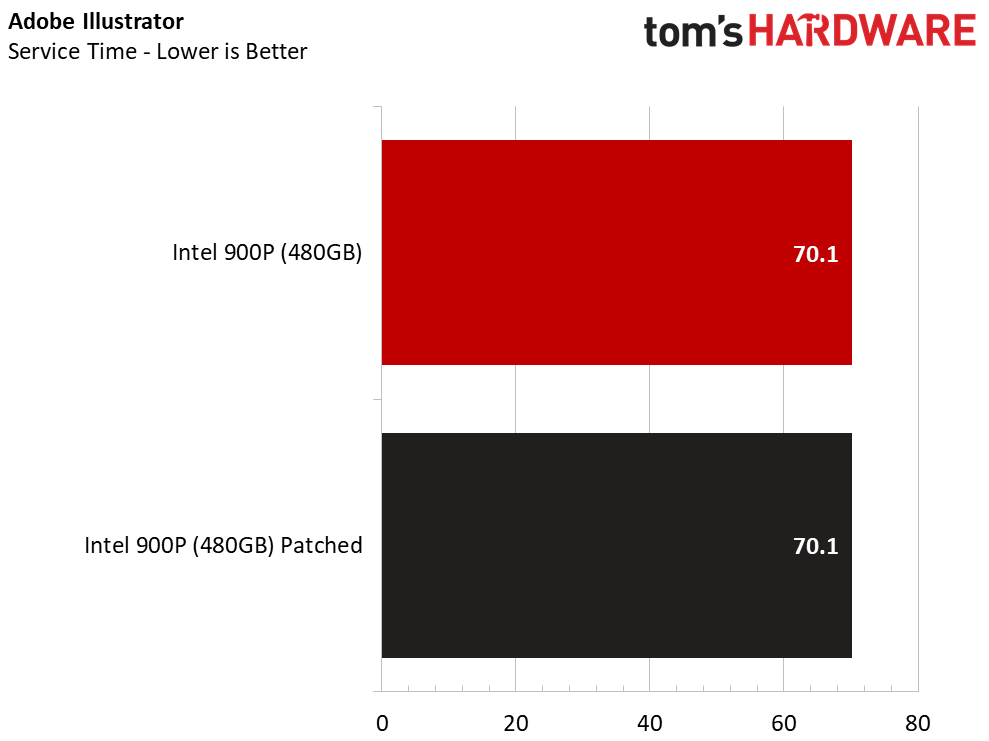
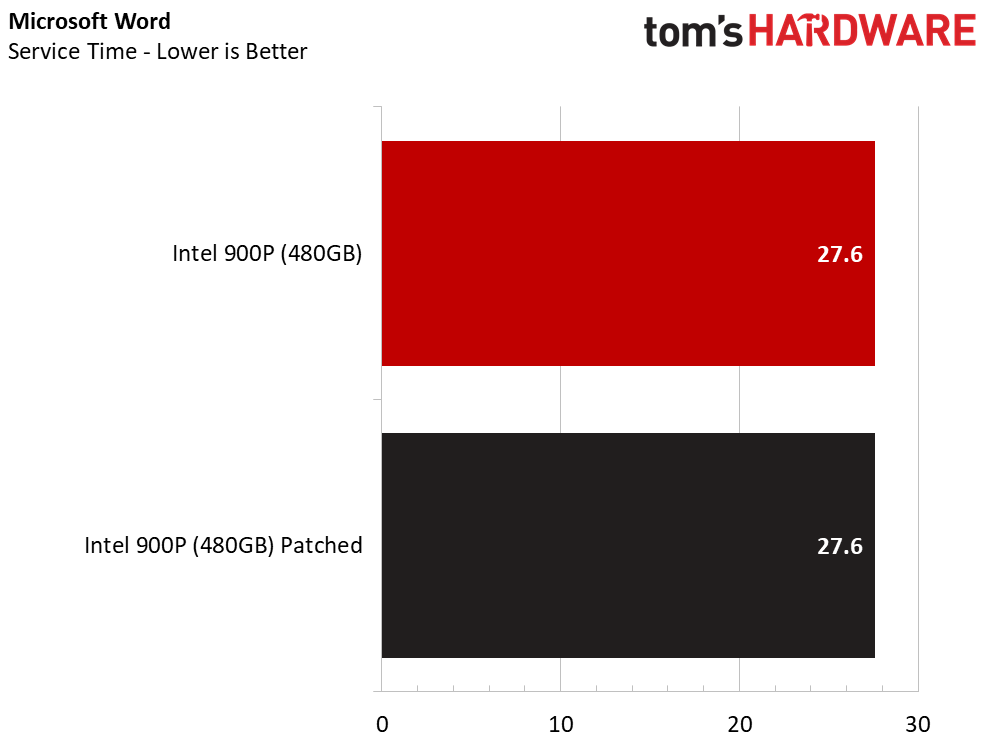
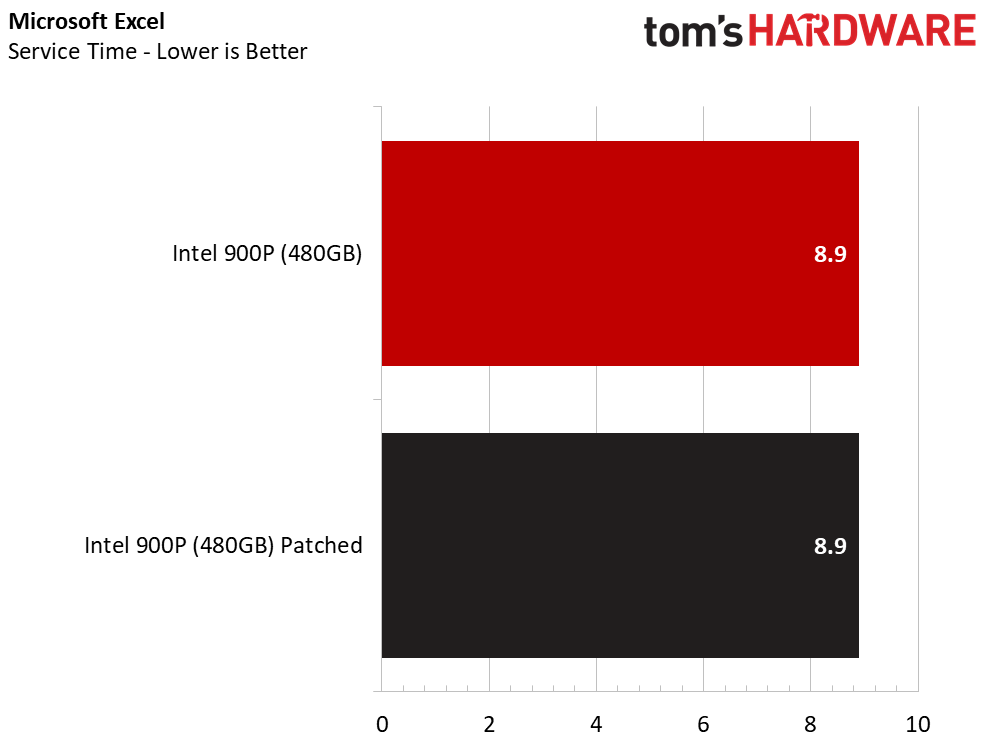
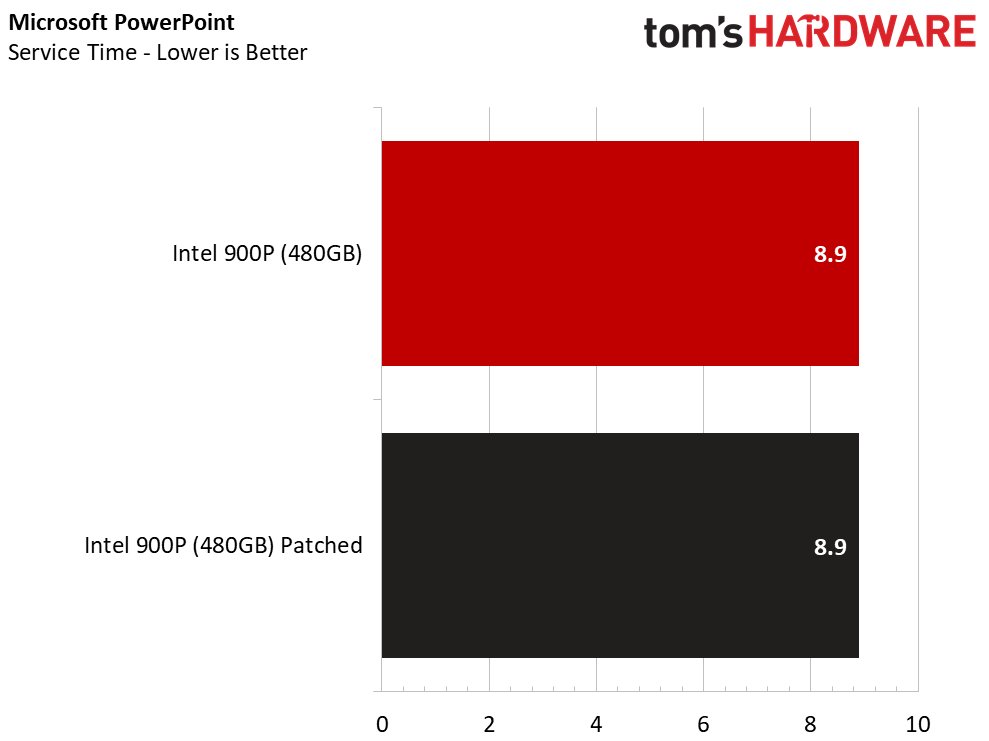
The time to completion was identical between pre- and post-patch application testing in all but one test. The only workload to show a difference came in the Adobe Photoshop Heavy Workload that takes more than five minutes to complete. We recorded a 0.1 second difference.
With the results averaged and presented as a throughput score, we see only a 46.29 MB/s difference, or 3.21%. For some that may seem like a large number, but for perspective, even if we didn't update the operating system, we would see the same difference with this device if we swapped it between motherboards, BIOS updates, or even adjusted the system memory timings.
The performance gap should decrease as we test with less-capable storage products. We're still exploring performance across a wide range of storage and processor types, and we will update if we find conflicting results. As of now, a 3.21% performance drop on an Intel Optane SSD 900P isn't the end of the world and isn't going to be noticeable with the majority of applications.

Chris Ramseyer was a senior contributing editor for Tom's Hardware. He tested and reviewed consumer storage.
-
ScrewySqrl looks like MS's patch is better than the Linux one in real-world applications, unless the Linux patch testing was all pure synthetics.Reply -
marcelo_vidal When the Intel scam start: https://newsroom.intel.com/news-releases/intel-to-acquire-mcafee/Reply
And now what we got ? -
nitrium I've been running numerous benchmarks on my two PCs (a work desktop PC and a MCPC) and it really does look like this is a bit of "mountain out of a molehill" for average users like myself. Most of the performance impacts I've measured (so far) post-patch were well under 1% (but up to 5% for a few very specific tasks, which is obviously significant if that's your business). That said, it's all negative though - so there are no positive things you can say about it. Intel really dropped the ball on this, and I'll be looking very closely at AMD for my next build.Reply -
AlistairAB Asus Aisuite is busted now after the patch. Thanks Intel and Microsoft and Asus. No more fan profiles and easy overclocking.Reply -
Blitz Hacker https://twitter.com/CCP_SnowedIn/status/948980181577875456?ref_src=twcamp%5Eshare%7Ctwsrc%5Em5%7Ctwgr%5Eemail%7Ctwcon%5E7046%7Ctwterm%5E3 this tweet from mmo game Eve-Online shows a little different picture about performance issuesReply -
linuxovios Microsoft's patch is the 1/3 of the proper patching that should be done... Please retest your systems after 2 moths when bios, os, browser etc. will be fully patched... Then you will realize the performance hit you are dealing with...Reply
Also see performance here: https://np.reddit.com/r/pcmasterrace/comments/7obokl/performance_impact_of_windows_patch_and_bios/ -
martin-barker Yeah sorry, i work in Web & Software Development and my Softwares have taken a Massive Hit, MariaDB, Dreamweaver, Git & Visual Studios all noticeably slower. and my Machine running an SSD when from about 5 second ready to use to about 8 seconds due to all the services starting that are memory jumping and syscallingReply -
humorific Yeah, but have you tested if the patch actually is effective on spectre and meltdown?Reply
